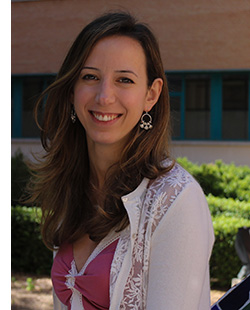 Are you about to finish your Ph.D. and thinking of doing a postdoc? If so, the Marie Curie Actions Research Fellowship Program (MC) could be a great opportunity for you. A European Union (EU) initiative to promote research and innovation, the MC is one of the most renowned postdoctoral fellowship programs. As Yanina Shevchenko pointed out in a recent Bright Futures post, “having your own funding not only looks good on your resume; it also provides you with some flexibility in choosing a research group.” These fellowships are a good way to achieve this goal.
Are you about to finish your Ph.D. and thinking of doing a postdoc? If so, the Marie Curie Actions Research Fellowship Program (MC) could be a great opportunity for you. A European Union (EU) initiative to promote research and innovation, the MC is one of the most renowned postdoctoral fellowship programs. As Yanina Shevchenko pointed out in a recent Bright Futures post, “having your own funding not only looks good on your resume; it also provides you with some flexibility in choosing a research group.” These fellowships are a good way to achieve this goal.
Individual MC grants are available to experienced researchers, regardless of their nationality, through three programs: Intra-European Fellowships for Europeans who wish to carry out projects in the EU, International Outgoing Fellowships for Europeans willing to pursue their projects outside the EU and International Incoming Fellowships for non-Europeans who wish to receive research training in the EU.
Apart from the generous funding (they are probably the best paid postdoctoral fellowships in Europe), these fellowships provide young scientists the opportunity to join an excellent research group and gain experience abroad. This allows you not only to expand your technical knowledge, but also to learn practical skills that will be useful for your career. Additionally, fellows are provided with a monthly stipend to cover expenses derived from research training.
However, the MC is very competitive—the acceptance rate is around 16 percent. To give you an idea, the last Intra-European Fellowship call received more than 3,700 proposals, of which almost 3,000 had a score above 70/100. Only those with scores above 89/100 received funding. Writing a good proposal is crucial and can be the deciding factor in getting your application funded. Below are some tips to help you apply successfully:
• Attend a workshop. Many universities organize colloquia and workshops about the program, so stay tuned for these events at your institution.
• Prepare in advance. Take into account that writing the proposal requires a lot of time (it took me three weeks!), so plan well in advance.
• Be sure your application is complete. The referees check carefully to see if all the parts of the application have been covered, so be sure you have addressed every point. It may be useful to structure your proposal with subheadings and sections, closely following the “Guide for applicants”.
• Be aware of the aims of the framework programme. “In each framework programme (currently FP 7), there are particular points that are supported with increased emphasis,” says Dr. Zsuzsanna Major, a former MC fellow at the Max Planck Institute of Quantum Optics. “It is very useful for the proposal to be aware of these particular aims while writing it."
• Avoid vague statements and provide specific examples. Don’t use generic phrases that could be applied to any field in any context. For example, instead of writing “this project will help to develop professional skills,” state that “the fellow will supervise two Masters students and help the group leader to write grant proposals. This will allow him/her to cultivate professional skills such as leadership and fundraising.” You can also include any relevant training courses that you plan to take at the host institution or professional societies you belong to (see the OSA Young Professionals Program).
• Be realistic. The project must be ambitious but feasible to complete in 1-2 years. Give a detailed plan of tasks and objectives including a Gantt chart. Provide a backup plan in case some parts of the project fail.
• Ask for advice. Your own university or the host institution should be able to help you with legal issues or other questions about the application.
• Get feedback from your peers. In addition to reviewing your proposal several times with your future supervisor, I also recommend getting feedback from colleagues whom you trust. I sent my proposal and the evaluation criteria to two of my peers and asked them to act as referees. Their revisions were tremendously helpful.
If you would like to apply for a MC fellowship, the call for 2013 is now open with a deadline of 14 August. Good luck!
Rocío Borrego-Varillas (rborrego@uji.es) received her Ph.D. from the University of Salamanca, Spain. She is currently a postdoctoral researcher at the Universitat Jaume I, Spain and has been recently awarded a Marie Curie Fellowship to conduct her research at the Politecnico di Milano, Italy.
